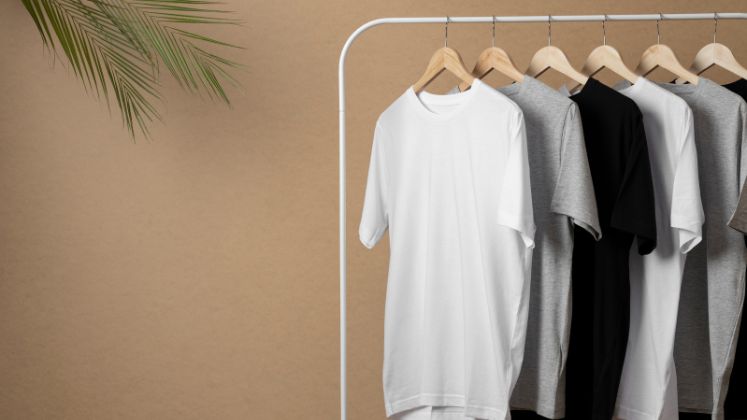In an earlier post – ‘Industry should learn from the setback and study contracts before signing’ – Deepak Mohindra, Chairman, Apparel Resources, had discussed the implications of the ‘force majeure’ clause and how the export community needs to be more careful in reading contracts and negotiating harder for a fair deal in case of crisis. He very aptly said, “The current crisis will pass, but clauses in contracts will continue to survive and if businesses don’t take the learnings and study contracts more deeply, asking for some protection clause, they will, continue to suffer.”
When talking to the industry, I realised that the debate on the rightfulness of order cancellations under the pretext of the protection clause of ‘force majeure’ is picking up as the full impact of the reality hits the industry. Workers are going unpaid, ready goods are lying in factories, millions worth of fabrics are stored in warehouses, cash is at an all-time low, and there is no guarantee when we will be back to business. Are buyers really justified in hiding behind the clause and refusing to take responsibility? Not everyone is gracious enough to believe so!
There is a consensus among the professionals in the buying side of the business that the clause is a part of most LC agreements, at least in the case of bigger retailers and brands, though some small ones which do not have clear policies will not have it in place. The importance of the protection was recognised after the 2008 financial crisis, and has since been a regular clause in contractual agreements.
Most of the professionals also agree that the clause applies to both suppliers and buyers, and so, both parties are exposed, and even without any specific mention of the force majeure clause in the contract, it is still applicable, recognised and enforceable by law. Yet, till now mutual agreement is the common route followed, instead of force majeure which needs to be proven in the court of law, if challenged by either party.
Giving a wider perspective, Sameer Thapar, MD, Montrose, says, “We have to understand that now the situation is very different and is not about one buyer. With most end-retailers shutting shops, the market has collapsed, and in order to get away from the legal liability of picking up goods they cannot sell, retailers are enforcing this clause. This kind of situation had never arisen, so probably this aspect of the agreement has always been ignored by suppliers when looking at a contract.”
Deliberating on why the bigger buyers are hiding behind the clause whereas the smaller ones are trying to negotiate a middle path, Mridula Lall, Global Sourcing Manager, Indiska, comments, “I see it two ways, big buyers have the financial muscle to cancel and still manage to get new suppliers if they lose old ones. On the other hand, smaller buyers will always look to partner as they have more respect for their supply chain. Secondly, a bigger buyer has a much bigger exposure and hence risk, so they need to cover this point for risk mitigation.”
However much one may try to justify, the fact is that big European buyers are not taking responsibility despite being the torchbearers of ethical practices. “The force majeure clauses are in place for all large brand contracts, but regardless of the contracts, the brands which themselves have such strong ethical and social compliance for manufacturers are not bound by any social or ethical conscience; it just makes no sense. There has to be an NGO push back for brand compliances also, as the brands need to understand that cancellations would lead to the poor labour who barely generates two meals, remaining unpaid,” argues Rakesh Saigal, CEO, Orange Sourcing. He even goes to the extent of questioning compliance organisations like Sedex, Wrap, Elevate, etc., on their role during this period.
The argument also goes that the Europeans are not being fair, as the pandemic is across all countries, not just Europe, and store closures are temporary. On the promise of anonymity, a Country Head of a big liaison office says, “This is NOT a natural calamity which is irreversible like in a hurricane or flood where everything gets destroyed. It started localised and due to carelessness of a country spread and was not really like an earthquake. Further all products being cancelled are not necessarily seasonal. For example, most of denims are seasonless in a way and can be sold when stores reopen, buyers can keep the stock in their warehouses. At the most, they can ask factories to pay warehouse renting charges which are minimal and vendors will pay happily. In fact, most of these corporates have huge warehouses anyway to keep inventory.”
According to some legal experts, most force majeure clauses include a list of applicable intervening events such as riots, wars and earthquakes. If there is a list of diseases specified under a force majeure clause in the contract and that list does NOT include COVID-19, the prospect of convincing a court that it should add the virus to the list is weak. It is further argued that courts tend to distinguish between a force majeure clause that completely prevents performance of the contract and one that only hinders it.
Exporters have been left in a lurch and a desperate manufacturer shared that the only way factories have is to negotiate, use relationship, use threat of blocking future business, and see if the major suppliers can make a consortium and have a common stand of choking supply chain of buyers who are cancelling. His thought process is not wrong, and collaborative efforts to get through this crisis is the only way to survive. Sharing inside information, Leela Kanuga, who has spent nearly three decades in the buying industry with some of the biggest names, says pragmatically, “The chairman of a large global office, based in New York, is already consulting a lawyer. If few big corporates get together, then buyers may realise this is their future supply chain after all and losses need to be amicably shared.”







